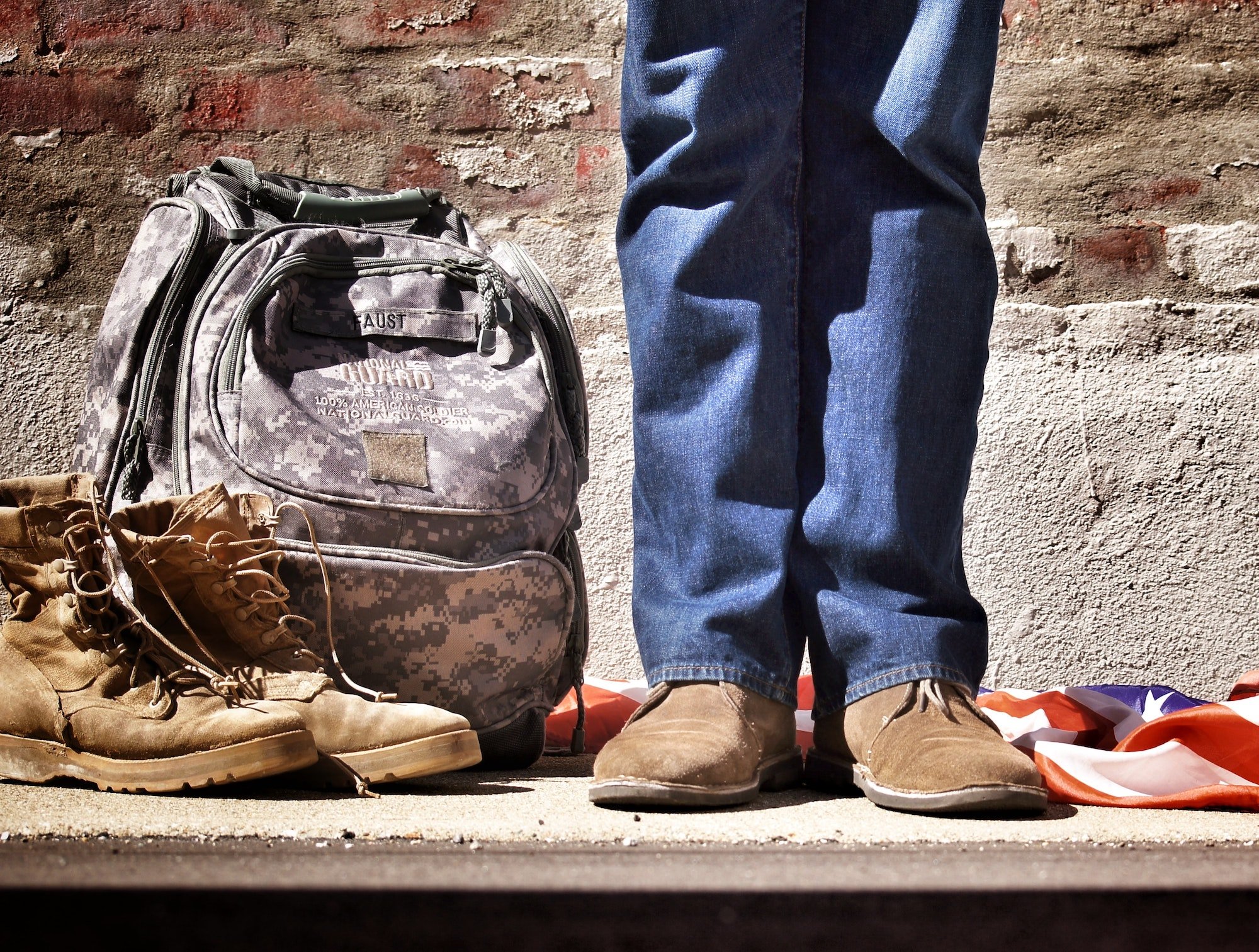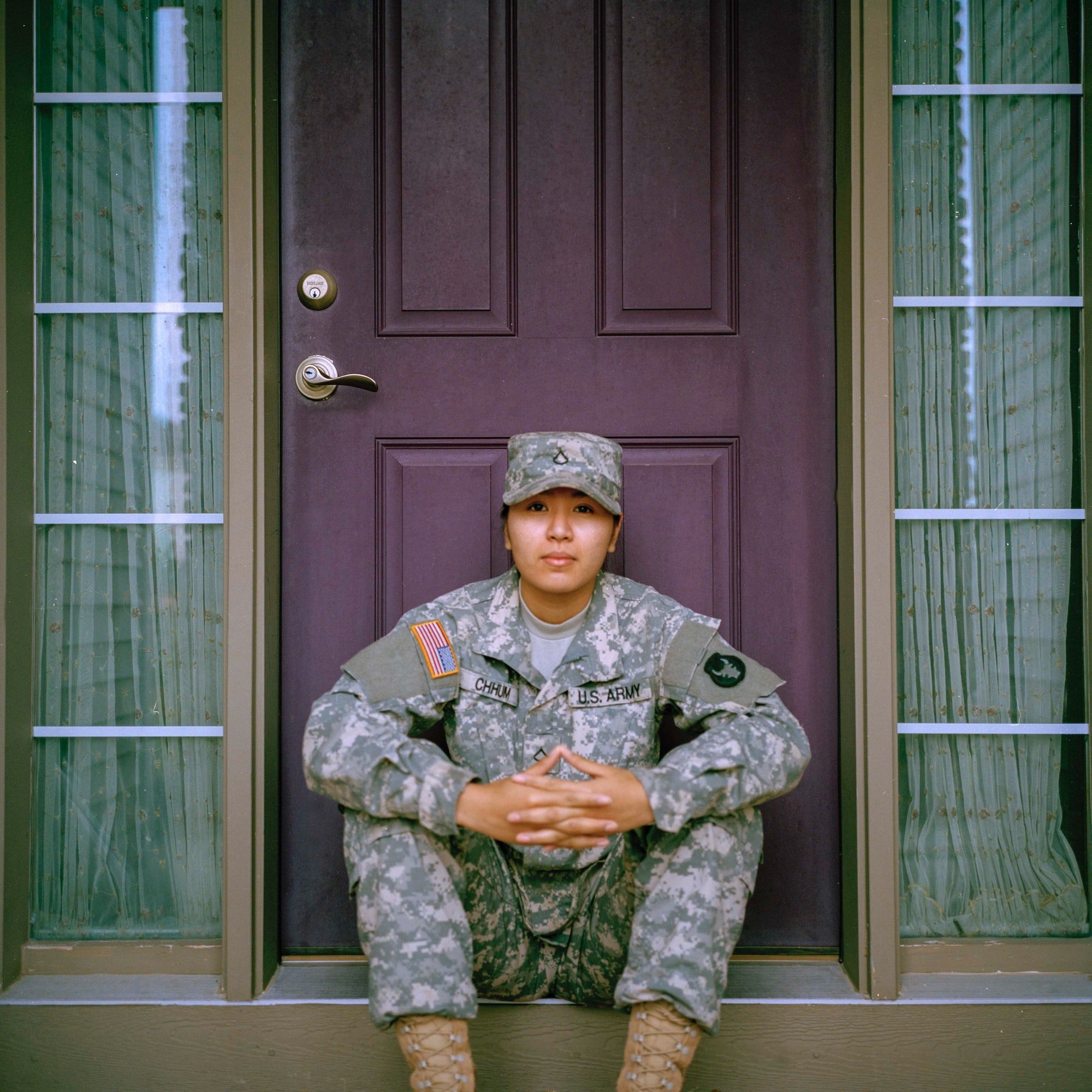Supporting Student Veterans in Higher Education
/Supporting Student Veterans in Higher Education
Many college educators and student affairs administrators are taking a critical look at how they serve and support different populations such as student veterans and servicemembers. Throughout the entire student lifecycle, implementing strategies that support academic success, career planning, health & wellness, financial and social needs, are easing veterans’ adjustment to college, and helping them to thrive.
Student veterans, in many ways, set foot on campus already way ahead of the game. Many will bring unique strengths and experiences, a wealth of knowledge and expertise, leadership skills, focus and self-discipline to teamwork and group projects. They are able to enrich classroom discussions and enhance campus diversity overall.
At the same time, non-traditional students, veterans included, can sometimes experience difficulties other students may not. 62% of student veterans are first-generation college students. They are twice as likely to hold a job off-campus. A student veteran may be older than their peers; they may be in a long-term relationship or already a parent with financial and time management challenges. They may also be experiencing serious injury or stress or simply find it more difficult to fit in on campus as they might have before their service.
Everyone is adjusting to a new environment, but a student veteran returning from deployment may feel disconnected, unsupported or alienated in ways that can be effectively addressed.
A vet-friendly campus offers support, programs and resources that aim to ensure inclusivity and a sense of belonging across the student lifecycle, for both military-connected students and prospects. From recruiting & admissions to financial, academic & support services, to representation and advocacy in campus culture, a vet-friendly or vet-ready campus is focused on better serving this population and fostering their talents.
Best Practices in Supporting Student Veterans
Higher education administrators and faculty shaping successful student veteran experiences might consider the following recommendations to better serve this deserving population. These strategies promote student success and persistence as they transition from military to campus life.
1) Amplify Awareness of Resources
Faculty and staff can make a big difference when it comes to making things easier for students who might be feeling lost. They provide guidance and answers to questions about financial aid, off campus housing, student affairs, training programs, and up-to-date information about education benefits (which may have time limitations).
A dedicated Veterans Web Page is a great place to centralize key information to support veterans’ academic success. Be sure to include specific points of contact for each campus department.
2) Streamline Services
Some student veterans may be dealing with physical or emotional issues such as an injury, hearing or vision impairment, stress and anxiety. Ensure the process to obtain needed services is streamlined. A helpful strategy can be to train gatekeepers to identify when a student is veteran and expedite their needs.
3) Develop Staff & Faculty Trainings & Ally Programs
Ensure your campus’ veterans are supported by educating faculty and staff on how to effectively communicate with and support military and veteran students. Help promote awareness about the strengths and needs of student veterans and where to make referrals for services. Provide staff with the knowledge they need to best respond to issues that emerge in the classroom and on campus.
Green Zone Training and Military Ally Training improve campus climate by helping community members learn more about the military-affiliated student experience.
4) Offer a Transition Course
Many colleges and universities require students to take a first year experience course. A similar course or workshop can be adapted to support student veteran success and acclimate them to campus life. Topics might include:
Helping students learn about campus resources, educational tools, career advising and skill translation
Bridging skill gaps through software training needed to keep pace with an evolving workforce
Providing an opportunity to address sensitive topics such as food insecurity, homelessness, gender issues and more.
5) Provide Remote-Inclusive Programming
Not all students are physically on campus, so it’s important to create programs to support distance and remote students.
Expand online classes and programs
Send out a weekly Veterans Office newsletter with critical information and resources
Livestream events for students who live outside the region to engage with the campus community
Coordinate webinars to provide academic support, career enrichment and/or therapeutic services.
Create a virtual space to host regular networking events to connect casually with peers
6) Communicate Regularly
Assemble a campus-wide email list of veteran programs and service providers to efficiently communicate important information, updates to academic policies and strategies that support student veterans.
Regularly reach out to current and prospective students to share relevant information such as navigating GI Bill funding. Host webinars, virtual forums, and open houses to engage and connect with students throughout the entire student lifecycle.
7) Guide Students Through Academic & Co-Curricular Tracks
For many students, it can be very helpful and welcoming for faculty and administrators to walk them through processes. Knowing what’s expected of them and seeing their progress in real-time goes a long way in ensuring milestones are met.
Utilizing a tool such as CampusGroups Tracks & Checklists enables administrators to guide student veterans through an intentional involvement pathway. Administrators are able to assign learning paths and experiences, track student success and progress, measure program effectiveness, and quickly identify & reach out to anyone falling behind.
8) Facilitate a Peer Mentorship Program
Let other student veterans serve as guides to incoming and prospective student vets! Help smooth the transition by implementing a peer mentor program where mentors receive extensive training on campus and local resources for veterans. Communications with peer mentors are often much faster than administrators’ outreach. This helps maintain high engagement among student vets!
Tip: Match new students with student ambassadors who share similar interests or professional goals.
9) Foster a Sense of Belonging
Peer to peer student engagement is a crucial component of building camaraderie and community on campus. Support and empower student organizations, such as veterans clubs and Student Veterans of America (SVA) chapters on campus to coordinate enriching activities for students to come together. These organizations are also able to provide networking and leadership opportunities, mentorship, guidance and support for student veterans in college.
“Veteran organizations provide not only an avenue for socializing with fellow vets but can also be a good resource for information and networking in learning how to find and use benefits by learning from others who have already been there.
Sharing problems associated with transitioning from military life to the civilian world can help with what can sometimes be serious difficulties in adjustment.”
10) Host Campus & Virtual Events
Campus events are a great way to help students make new connections and expand their network! Collaborate with your Veterans Affairs department, local VA, student-led veterans clubs, and community partners to recognize and bring awareness to student veterans through on-campus and remote-inclusive events.
Invite speakers, host forums, panel discussions and conferences, and celebrate student veterans at signature events such as a Veterans Day ceremony. (Military-connected alumni can be a great resource for finding guest speakers!)
11) Establish a Vet Resource Center
Student veterans benefit from a designated space where they can interact with one another and obtain important information. A dedicated Vet Space optimizes academic success by offering easy access to valuable services such as academic advising and tutoring, supportive peer mentoring, social events, benefits counseling, transition assistance, assistive technologies and training, and referrals to on and off campus resources.
12) Priority Registration for Classes
Classes can fill up quickly. Some campuses offer priority registration to student veterans so they are able to secure class placements. For vets, this is especially important and can mean the difference between losing tuition benefits or delaying graduation.
13) Participate in Job & Resource Fairs
Connect student veterans with myriad opportunities through on-campus, regional or online job and career fairs. These events help job seekers find out about career opportunities, meet employers, and learn about educational and internship opportunities. Empower participants to access information about benefits, training resources and career paths.
Hiring our Heroes connects the military community—service members, military spouses, and veterans—with American businesses to create economic opportunity and a strong and diversified workforce.
14) Attract and Support Military-Connected Prospects to Apply
A vet-friendly environment starts well before students set foot on campus! Dedicated staff in your campus veterans office can help prospective students navigate the process. Participate in outreach programs such as Warrior-Scholar Project, and attend or host education fairs for military-connected students. Build a dedicated website to share information on different pathways to your program.
15) Minimize Transfer Credit Issues
It is well established that the longer it takes a student to complete a degree, the less likely he or she is to graduate. As many student veterans are transfer students bringing college credit from other institutions, having a clear and fair transfer credit policy is critical to sustaining or improving retention rates in this population. (Unclear or adverse transfer credit policy may also limit where prospective students choose to apply.)
16) Establish a Veteran Task Force
Create a veterans education advisory committee to help evaluate campus policies and programming. The goal of this team is to offer short and long term recommendations to improve services. Include interdepartmental administration and faculty, high level campus officials such as the dean of students and director of veterans office, and of course student representatives.
17) Collaborate with Community Organizations
Some vets arrive on campus with service-connected needs ranging from a disability, hearing or vision impairment, to stress, depression, anxiety or other challenges. Many campuses develop partnerships with local VA facilities, veterans service organizations and non-profits to provide comprehensive services to campus.
Consider building alliances with community groups and guard/reserve units, and be sure to generate a centralized & highly visible resource list for students to easily access on a dedicated website.
18) Offer Targeted Orientation Programming
Many veterans transitioning out of the military may be unable to attend traditional orientation sessions over the summer. This can result in missing out on a thorough introduction to campus life, leading to feelings of disorientation. Additionally, standard freshman and transfer orientations may not cover veteran-specific concerns either.
To address these challenges, some institutions create short breakout sessions for veterans, in addition to standard programming. Other campuses have implemented a separate, short orientation program held early in the new semester. This targeted orientation empowers student vets with access to benefits information and campus resources, and introduces them to key campus administrators for a more welcoming introduction.
19) Continue the Conversation
Adapting and optimizing campus programs requires direct input from enrolled student veterans. Staff and faculty should strive to continually learn about the current needs, issues and experiences of their students through regular surveys, roundtable discussions, conferences, interviews, panels and focus groups.
Ease the Adjustment: 4 Quick Tips for Student Vets
Find an institution with a dedicated veteran’s support office and welcoming campus life.
Reach out to the veterans support office. They are there to help support you, navigate questions and connect you with helpful resources, mentors and advisors.
Campus resources exist to help support transition and success, so don’t be afraid to use them! The veteran support office will help coordinate your needs with on and off campus service providers.
Connect and socialize with other veterans who may share similar experiences, but be sure to broaden your experience and network by participating in activities and clubs that align with your interests and career goals, too!
Campus Spotlight: Wharton Veterans Club at The Wharton School of the University of Pennsylvania
United Through Service: The Wharton Veterans Club is deeply committed to assisting transitioning service members and veterans who are interested in pursuing an MBA. Club Co-President Adam Breslin shares critical insights on how the organization provides outreach and support for the Wharton community and beyond.
“My general words of advice would be to not discount your service.
All of us came up in an organization in which humility was crucial. Extraordinary actions and deeds were viewed as just a part of the job requirements. However, the unique experience of your career is valuable to the community at whichever school you attend.”
Background & opportunity:
“Universities, colleges, and any institution of higher education really have a vested interest in supporting student veterans. While the military is a cross-section of the United States population, veterans, as a group are underrepresented at the top universities in the country they served.
However, veterans provide a much-needed perspective to the classroom, whether we’re discussing undergraduate or graduate-level education, the veteran experience provides a unique insight that is beneficial to the classroom experience for all students. The Montgomery GI-Bill post World War II was one of the largest social programs to provide class mobilization to the middle-class following World War II. That same class mobilization has not been seen in the veterans of the Global War on Terrorism veterans leaving the service post 9/11.
Higher education is one of the best facilitators of class mobilization in the United States and it is being underutilized by the American service members that dedicated their lives to the service of the country.”
Mission:
“The Wharton Veterans Club is focused on a small subsect of this mission. The organization provides outreach and support for service members looking to transition from their time in the service to top MBA programs throughout the country.
Many of the members of the club spend time supporting current and former service members to prepare their applications to MBA programs. Many of the prospective applicants have been military officers, however, the club has made a concerted effort to support more enlisted and international veterans in their efforts to gain admittance to top schools.”
Advice:
“My general words of advice would be to not discount your service. All of us came up in an organization in which humility was crucial. Extraordinary actions and deeds were viewed as just a part of the job requirements. However, the unique experience of your career is valuable to the community at whichever school you attend.
Secondly, apply. Most schools waive the application fee for veterans. While you may not have top test scores or grades, you can still be admitted to an amazing school. The only way that isn’t true is if you don’t apply. The worst thing that happens is you don’t get admitted and just reapply to the program. Apply to any program that interests you.”
It’s a team effort! Supporting military-connected students should go beyond the Veterans Office. Military students cross paths with a multitude of offices and policies while pursuing their education. Vet-friendly campuses look for opportunities to collaborate in programming to support the unique needs of this population as part of their long-term strategic plans.
Leadership, service, resilience, adaptability. Helping student veterans see their own potential and strengths is key. College faculty and administrators are in the unique position to design critical programs and services that will enhance veteran success in higher education — and for prospective students, to shine a light on pathways to entering campus life and accessing many well-deserved opportunities!
Additional Resources:
Yellow Ribbon Program - Financial support to student veterans
Student Veterans of America - Premier non-profit organization working to support and provide useful resources for Vets in college
The American Council on Education - Mobilizing the higher education community to shape effective public policy and foster innovative, high-quality practice
The VA Vital Program - Information and resources to enhance academic retention and success
VA College Toolkit - Provide members of college faculty, staff, and administration with resources to support student Veterans
Green Zone Training - Training program empowering participants to support military students
Department of Veterans Affairs VA, Department of Labor, Department of Defense - Keep up to date with policies & benefits information by subscribing to their newsletters and following them on social media
The National Resource Directory (NRD) - Access a database of validated resources that supports recovery, rehabilitation, and reintegration for service members, veterans, family members, and caregivers
GI Bill Comparison Tool - Learn about education programs and compare benefits by school
Would you like to learn about utilizing centralized campus engagement tools to support and empower student veterans and groups in your community? Please feel welcome to reach out to us to chat with a CampusGroups product expert and let us know about your institution’s goals!





















